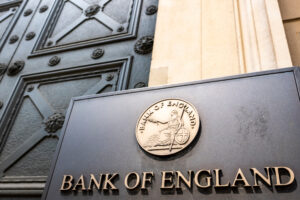
The Bank of England is leaving “all options on the table” including a bigger 50 basis-point interest rate rise to tackle 40-year high inflation, central bank governor Andrew Bailey has warned.
Bailey told an audience of global central bankers that rate-setters would leave the door open to more aggressive monetary tightening, despite the gradual pace of rate rises so far this year.
“[It] leaves options on the table and that is very deliberate,” Bailey told an audience at the European Central Bank’s annual forum in Sintra, Portugal. “I want people to take the message, as we respond to the [inflation] shock, that we want to have options on the table. There will be circumstances where we have to do more,” Bailey said.
The Bank has raised interest rates at its past five meetings by 25 basis points, taking the UK’s base rate to 1.25 per cent, the highest since 2009. But an upsurge in inflation, despite monetary tightening this year, has raised the prospect of more aggressive 50 basis-point rises to contain price pressures.
Bailey said he had not yet decided whether to vote for a 50 point rise, after three of the nine strong monetary policy committee (MPC) supported bigger increases in the two most recent rate-setting meetings. The Bank makes its next rate decision in early August.
UK consumer prices inflation is 9.1 per cent, the highest since 1982, and is expected to peak above 11 per cent this year, making Britain the worst-hit developed world economy. Bailey said double-digit inflation was largely the result of the UK’s energy price market. Households have faced huge rises with much higher bills coming in October.
He said that if inflation is more persistent, “then we will act more forcefully and we will have to.”
The pound has lost more than 10 per cent against the dollar this year, adding to inflationary pressures by raising the price of imported goods. Bailey said he was “not surprised” as “the UK economy is weakening more than others”.
Business BriefingIn-depth analysis and comment on the latest financial and economic news.One-click sign up.
The world’s central banks have making a radical reversal after more than a decade of ultra-low interest rates and monetary stimulus to tackle inflation.
Christine Lagarde, president of the ECB said: “I don’t think we will go back to the world of low inflation.”
Policymakers have come under fire for failing to foresee how far inflation would rise after Covid-19 lockdown measures were lifted. “We now understand better how little we understand about inflation,” Jay Powell, chairman of the US Federal Reserve, admitted.
Read more:
We could raise interest rates faster, says Bank of England governor Andrew Bailey




